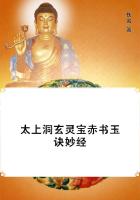Hull opened its gates to the rebels, and before the end of October a well trained army of close on 40,000 men led by the principal gentlemen of the north lay encamped four miles north of Doncaster, where the Duke of Norfolk at the head of 8,000 of the king's troops awaited the attack. The Duke, fully conscious of the inferiority of his forces and well aware that he could not count on the loyalty of his own soldiers, many of whom favoured the demands of the rebels, determined to gain time by opening negotiations for a peaceful settlement (27th Oct.). Two messengers were dispatched to submit their grievances to the king, and it was agreed that until an answer should be received both parties should observe the truce. The king met the demands for the maintenance of the old faith, the restoration of the liberties of the Church, and the dismissal of ministers like Cromwell by a long explanation and defence of his political and religious policy, and the messengers returned to announce that the Duke of Norfolk was coming for another conference. Many of the leaders argued that the time for peaceful remonstrances had passed, and that the issue could be decided now only by the sword. Had their advice been acted upon the results might have been disastrous for the king, but the extreme loyalty of both the leaders and people, and the fear that civil war in England would lead to a new Scottish invasion, determined the majority to exhaust peaceful means before having recourse to violence.
An interview between the leaders and the Duke of Norfolk, representing the king, was arranged to take place at Doncaster (5th Dec.). In the meantime a convocation of the clergy was called to meet at Pomfret to formulate the religious grievances, and a lay assembly to draw up the demands of the people. Both clergy and people insisted on the acceptance of papal supremacy, the restoration of all clergy who had been deposed for resisting royal supremacy, the destruction of heretical books, such as those written by Luther, Hus, Melanchthon, Tundale, Barnes, and St. German, the dismissal of heretical bishops and advisers such as Cromwell, and the re-establishment of religious houses. Face to face with such demands, backed as they were by an army of 40,000 men, Norfolk, fearing that resistance was impossible, had recourse to a dishonest strategy. He promised the rebels that a free Parliament would be held at York to discuss their grievances, that a full pardon would be granted to all who had taken up arms, and that in the meantime the monks and nuns would be supported from the revenues of the surrendered monasteries and convents. Aske, whose weak point had always been his extreme loyalty, agreed to these terms, and ordered his followers to disband. He was invited to attend in London for a conference with the king, and returned home to announce that Henry was coming to open the Parliament at York, and that the people might rely with confidence on the royal promises. But signs were not wanting to show that the insurgents had been betrayed, and that they must expect vengeance rather than redress. Soon it was rumoured that Hull and Scarborough were being strengthened, and that in both cities Henry intended to place royal garrisons. The people, alarmed by the dangers that threatened them, attempted vainly to seize these two towns, and throughout the north various risings took place. The Duke of Norfolk, taking advantage of this violation of the truce, and having no longer any strong forces to contend with, promptly suppressed these rebellions, proclaimed martial law, and began a campaign of wholesale butchery. Hundreds of the rebels, including abbots and priests, who were suspected of favouring the insurgents, were put to death. The leaders, Aske, Lord Darcy, Lord Hussey, Sir Thomas Percy, Sir Francis Bigod, together with the abbots of Jervaux and of Fountains, and the Prior of Bidlington were arrested. Some of them suffered the penalty of death in London, while others were sent back to be executed in their own districts. By these measures the rebellion was suppressed in the north, and the rest of the counties were intimidated into submission.[36]














